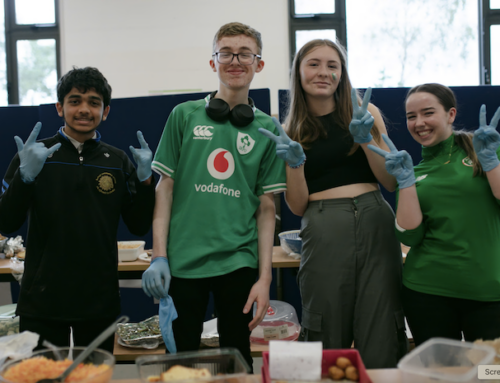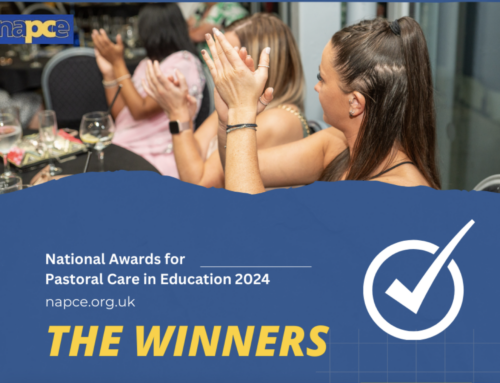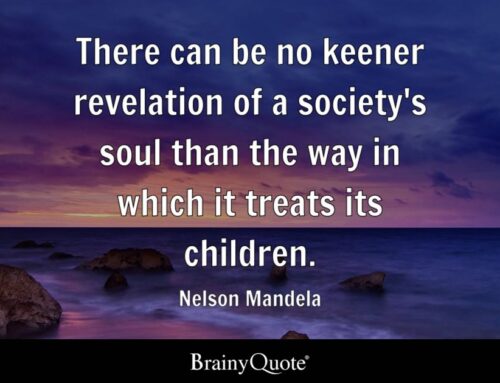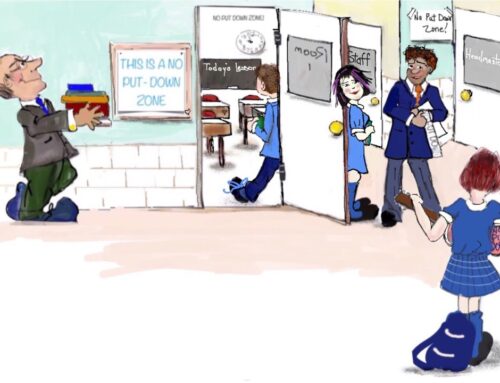What are we talking about?
‘Great Kids’ are defined here as those children and young people who are flourishing in all dimensions of their being and becoming. By ‘great kids’ we do not mean grade A kids, gifted kids, or even good kids!
This article defines what it means to be a ‘great kid’, discusses why this is important and explores what children need from home, school and the community to be the best they can be and feel comfortable with who they are. This is what matters, this is what makes a difference to authentic wellbeing, this is what works. But first, we need to unpick some beliefs that are unhelpful in growing great kids.
I’ve also started a series of more detailed articles about specific aspects of child development:
Myths of wellbeing
Our society is sold several myths, or at least half-truths, about what makes life worthwhile and brings us happiness. Unfortunately these are leading to increasing distress in our young people and a misguided emphasis in schools and families.
Passing exams with flying colours. Many students are getting the impression that if they don’t get really high scores on tests they will be letting themselves down, everyone will be disappointed in them and doors will be forever closed. No wonder we have high levels of anxiety – in both students and teachers. Anxiety is the most common mental health problem for young people in Australia and over half of all those diagnosed experience their first onset by the time they are eleven. Similar reports have been found in the US and the UK.
Although qualifications do make a difference to the range of options available in life and not getting high enough grades sometimes does mean not being able to follow your dream, it is not the end of the world. Plenty of students who don’t do brilliantly at school still make a success of their lives. They find meaningful careers where they are able to engage their strengths, perhaps learn to take initiatives in a different direction or return to study as mature students. I once knew two brothers, both sons of academics. The younger did exceptionally well at school but the elder had a more practical bent. His teachers constantly expressed surprise that this boy was not as ‘bright’ as the rest of the family. The ‘clever’ brother became a special needs teacher and the other a builder, eventually owning his own company. Both did well but you would have thought from the conversations in school at the time that the one who didn’t get great results was heading for inevitable disaster. Those who do get excellent exam results on the other hand might burn out, drop out or continue to focus on pleasing those in authority. Employers are now saying that young employees often struggle to take the initiative in case they make a mistake and are not very resilient when things do go wrong. Those who have crammed to get high marks may be particularly at risk because they have not learned to think for themselves, just regurgitate facts. Education is more than increasing your knowledge and skills base, it is how to use this to good effect. We need to value the diversity of strengths and interests our young people have.
Stuff and status. We are told by advertisements and magazine articles that having the latest, the best or the most of anything will make us happy. Some parents do not understand when their children are not grateful for all the ‘stuff’ that comes their way. “He has everything he could wish for”, said one dad, bewildered that his son was in trouble at school. But the nine year old lad clearly didn’t have what he needed most – some quality time with parents who were not at each other’s throats. Although it does not boost anyone’s wellbeing to be in poverty and constantly worried about paying bills, over a certain level, more money does not bring sustainable happiness unless other things are in place. A lottery winner interviewed nine years after his multi-million windfall was back doing his original job designing and making celebration cakes. This gave his life meaning and he said that no money in the world brought him the same sense of satisfaction. Just read the biographies of the rich and famous – many are in conflict with people who are supposed to be close to them – and rushing around building up their assets gives them little time to savour what they do have or to just enjoy being alive.
So what does it mean to be a great kid and how do we grow them?
A great kid is curious and eager to learn. I watched a two year old recently in a children’s playground playing with a row of chimes. He banged the different pipes in turn and listened intently while the sound surrounded him and then faded away. He then went round the back to see if they made a different noise from a different direction. He was absolutely absorbed in this learning. His dad was sitting on a bench the other side of the park, reading the Saturday paper. Both child and parent were missing out on some rich conversations that would not only have boosted their relationship but also enhanced the learning opportunities in that situation.
I wonder what happens when …
What else could you … ?
That sounds like …
We hear from teachers that children often come to school with impoverished language. Much of their interaction has been with a screen so they are not used to the two-way dialogue that stimulates thinking. We also know that as children go through school their confidence as learners often diminishes. Children have an innate drive to understand and experiment with the world around them. The more we foster and encourage their curiosity, allowing them to make mistakes and sometimes make a mess, the greater their thirst for learning will be.
A great kid is creative and imaginative. Imagination is an amazing gift. Without this there are no inventions, innovations or problem-solving, let alone stories. Imagination enables us to empathise, to put ourselves in the place of others: you need imagination to explore alternatives, play within your mind and play with others. You can develop a child’s imagination by encouraging them to ‘pretend’. I once spent a whole hour with a four year old playing ‘on the beach’ in my living room, building sandcastles and knocking them down, looking for shells and crabs, paddling in cold water and jumping the waves – with no props at all except our imaginations. The amount of bought toys that children have leaves them with no need to develop imaginative games – and this has implications for their creative and critical thinking.
A great kid is connected and empathic. Feeling that you belong somewhere, that you matter and can contribute is a basic psychological need and a protective factor against adversity. Authentic connection requires reciprocity. Children who are given opportunities to be part of collective action and people let them know that what they offer is valued see themselves as part of that community, whether this is a family, class, sports club or place of worship. These days there are many children who have a sense of entitlement about their rights but little in the way of responsibility towards others. When parents and teachers have high expectations of what young people can do to support others this promotes a greater sense of connection. Connected kids learn relational values of respect, kindness, honesty and trust. This gives them a great advantage in developing healthy and sustaining relationships in their lives, one of the most significant pillars of authentic happiness.
A great kid is a good team player. Being a team player means being able to understand that the group goal can be more important than individual success. A team cannot win a match if one person hogs the ball all the time. An orchestra requires each instrument to come in at the right time to make music. Team players share in team celebration and join in with the sadness at losing. Many workplaces require team effort – those children who learn the skills needed to support teammates and recognise the strengths of others are better able to collaborate in group endeavours – and experience the pleasure that is to be had in being part of something worthwhile beyond self-interest.
A great kid is confident about who they are. Young people are often encouraged to conform – to be like everyone else. And yet everyone is different, each one of us is wonderfully unique. It brings richness to society to have and value diversity. To own who you are takes courage and requires an approach in schools and at home to accept children whatever their ability or background – even if you are not always accepting of their behaviour! I have sometimes asked both teachers and students to devise a recipe for a Confidence Cake. Groups decide what ingredients would go into their cake, how to mix it, the way it would be cooked and what would be appropriate decorations. Ingredients have included several positive experiences, a large cup of kindness, a handful of TLC, three tablespoons of positive feedback, a big dollop of encouragement and someone who believes in you. These are mixed carefully with a sprinkling of smiles and cooked slowly in a warm and supportive place. The cakes have been decorated with pride and laughter and hundred and thousands of good feelings. Confidence makes the difference between having hope for the future and believing you can do things or feeling that you are just the victim of fate and everything happens to you. Children are unlikely to be confident if they are spending all their energies trying to fit someone else’s expectations of who they should be.
A great kid likes to have adventures and will have a go at things. Every child has a drive towards independence. This is allied with being natural scientists – kids want to experiment. This is most obvious in small children who throw food to see what happens or press buttons on as many devices as they can reach. These days busy parents often find it easier to do things for their children rather than encourage them to do things for themselves. I was recently told of a 12 year old boy who had no idea what to do with an orange – someone had always peeled it for him. There has been an explosion in ‘risk-averse’ parenting where families are either afraid for their children and therefore protect them from everything that might possibly harm them – or afraid of them, avoiding tantrums at all costs. If children don’t have the opportunity to test things out for themselves, they will have fewer skills to make good decisions about risk taking when they are older.
A great kid is resilient and persistent. Some children are never given the opportunity to feel bad, sad or a failure, so never have to learn how to deal with these difficult feelings. When something goes wrong – as it inevitably will – they have nothing to draw on and often go to pieces. Resilience means not being devastated by a life event so that it overwhelms everything else. Without resilience you are unlikely to have another shot at something – you give up. It’s all too painful. In order to be resilient children need to get things into perspective and not sweat the small stuff. It helps to have a sense of thankfulness for what they do have, rather than bemoan what they don’t. The conversations around children make a big difference here. How adults talk about events, other people, what is important and how they get over disappointments is what children hear and what children learn.
A great kid likes themselves, but also sees themselves developing into a better person. There are plenty of children who are precious to their parents and are told all the time how wonderful they are. This leads to shallow self-esteem, which is not associated with character, effort or achievement. You can only genuinely like yourself if you can acknowledge that you have or are developing qualities, you can do things, you are learning, growing and becoming someone that you choose to be. Some youngsters only hear what a nuisance they are or how naughty and therefore have nothing positive to live up to. Using strengths-based language and helping kids become the people they want to be – holding onto high expectations that are achieved in small steps – will seed a child who is likely to grow into someone who is their own person … complete, confident, self-assured, empathic, connected and able to love life and engage with all it has to offer.








Leave A Comment
You must be logged in to post a comment.